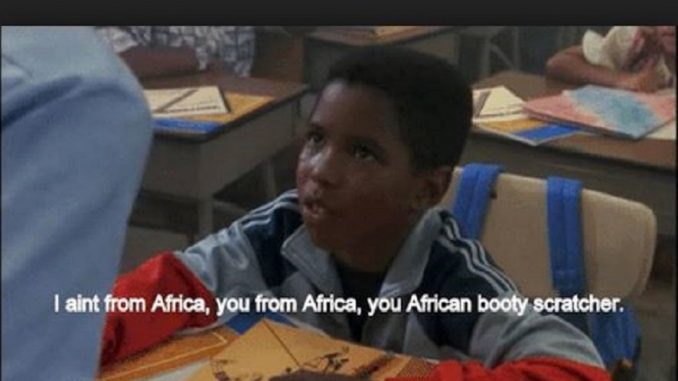
It is well established that Africa is the birthplace of mankind some millions of years ago, and everyone else came from the Black continent before evolution and migration to other parts of the world.
It is also a well-established fact that every person with Black skin is of African descent. But this hasn’t stopped Black Americans from discriminating against Africans in the United States who are often subjected to name-calling and belittling.
MORE ABOUT THIS
How the Dashiki brought a generation of Africans and African Americans together
Africans could soon take over these countries outside the continent
All you need to know about black Africans with blue eyes
5 common issues facing Africans abroad you need to know
“Back in the day, black African booty scratcher was a normal put down amongst us. And, you could have the blackest magazines and be aintblack af. colorist af. I am over 40 and really just embracing myself. Think about that.”
This was the sentiment of a Twitter user who commented under a thread discussing the “brutal and deeply anti-Black” America where Black people call Africans “ugly”, “round faced”, “big lips”, “wide noses”, “nappy haired” because they were dark-skinned.
The Twitter user who goes by the handle @obaa_boni, started the thread and said the level of discrimination is “why dark skinned girls often go through that phase where it is only later in life that they can access desirability.”
The Ghanaian believes anti-Blackness is the reason many Black people made fun of rapper Jay Z’s lips and nose.
They came here and got mad at african booty scratcher, not understanding that that’s how we behave in Black American Culture. By what they used to called “playing the dozens”. It’s nothing personal.
— UNCONQUERABLE PRESENCE (@NoBeginningNoND) June 12, 2018
Calling Black Americans ‘Akatas’ is African culture nothing personal dude cause we’re not lost or looking for something
— Derrick Rhombus (@derrickrhombus) June 12, 2018
